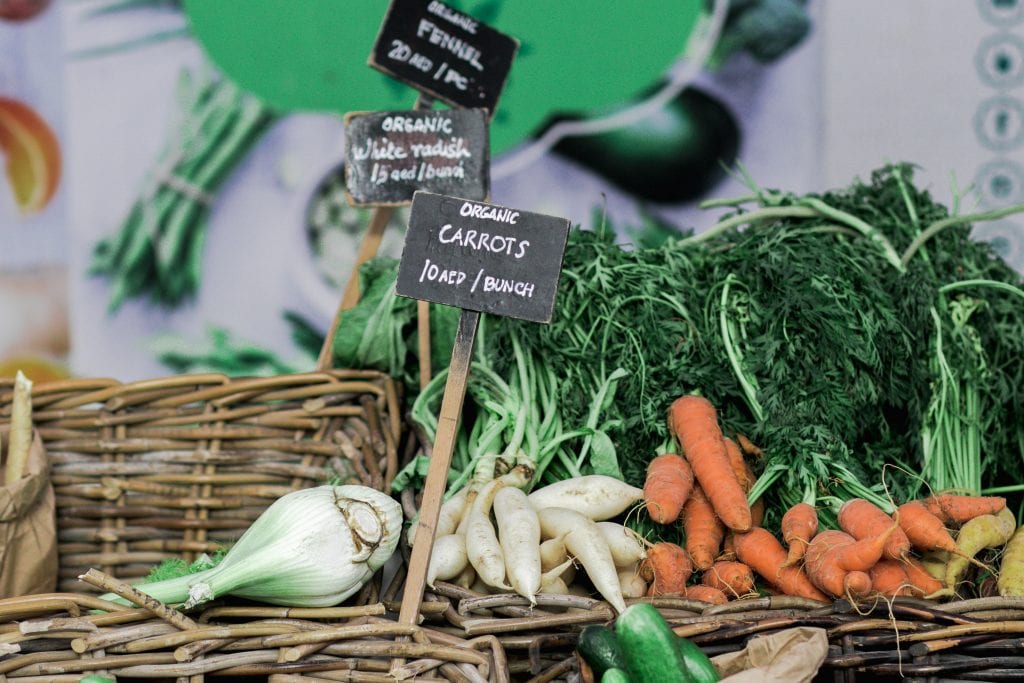
What is organic food
Organics is a philosophy, it is about harmony between man and nature, it is when the cultivation and production of high-quality products use processes that help preserve natural resources, protect the environment, restore soil fertility, increase biodiversity, apply high standards of animal welfare.
Organic foods are obtained as a result of certified organic production, at all stages of which the use of chemically synthesized excipients (fertilizers, pesticides, technological impurities), ionizing radiation, growth regulators and stimulators, genetically modified organisms, antibiotics for prophylactic purposes, preservatives, artificial flavors, and colors.
Production of all organic products begins with land certification. Even if it’s dairy or meat. Fields and pastures used for livestock farming must first receive organic status. Cows that produce organic milk should graze on grass that has not been exposed to pesticides, dioxide, or other chemicals that can then turn into milk or meat.
The land must be certified as organic. In order for a field to receive organic certification, at least 2 years of transition must pass, as there is no guarantee that substances banned in organic production have not been used on this land before.
After receiving an organic certificate for the land, the farm has the right to obtain a certificate for animal husbandry and production of animal products. Organic meat and dairy products are obtained from animals that have not consumed growth hormones and antibiotics.
There are also requirements for processed foods. Purely certified organic raw materials and special careful technological modes must be used in production.
If an organic product is made from several ingredients, such as bread or dessert, then 95% of its ingredients must be organic. The remaining 5% are components that are permitted by the List of Process Substances and Impurities of the International Accredited Certification Body for Organic Production and Processing, equivalent to Council Regulations (EU) № 834/2007 and № 889/2008.
Each stage of production must be monitored and be certified, organic farming must be transparent at each stage of work and meet standards. Each certificate is a quality mark that allows you to track the path of the product from the grain to the shelf of the market.
Why is organic more expensive than traditional food?
From an economic point of view, organic production is very expensive: the technology of cultivation and processing is strictly regulated by standards, and the production itself is subject to certification.
As the costs of organic production are higher, the cost for consumers increases by an average of 15-30%, and in some cases – by 50%. This is due to the fact that, during the growing process, the crop may be damaged, because organic products can not be used chemicals to control pests and products that increase yields.
Abandonment of “chemistry” allows organic farmers to achieve decent results – 50-70% of traditional agriculture. Accordingly, such products are more expensive.
If we talk about processed foods, the price increases not only because of more expensive raw materials but also due to the fact that the products have a shorter shelf life, which increases the cost of logistics.
The use of stabilizers, synthetic flavors, flavor enhancers, artificial colors, and chemical preservatives is prohibited in organics. Pricing is also affected by the cost of annual organic certification.
If we talk about organic livestock, then there are clear requirements for the number of animals on farms for a certain area, for the method of keeping animals, feeding, and treatment. For example, the use of antibiotics and growth hormones is prohibited. Organic farms also treat animals more humanely. All of this ultimately affects pricing.
Picture Credit: Unsplash